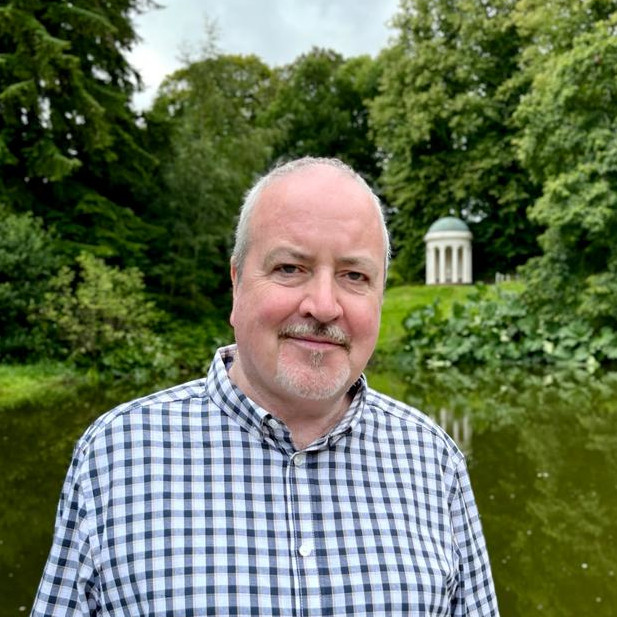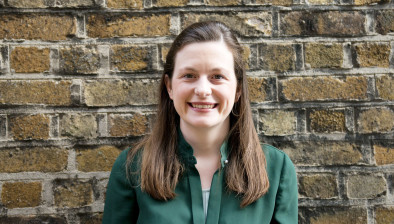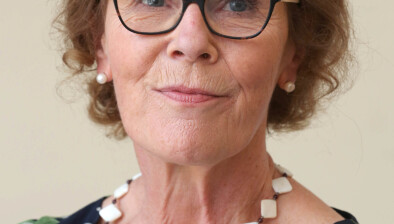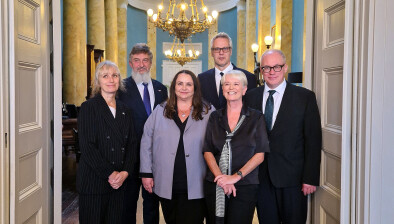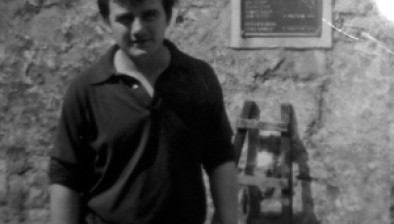Lawyer of the Month: Paddy Kelly
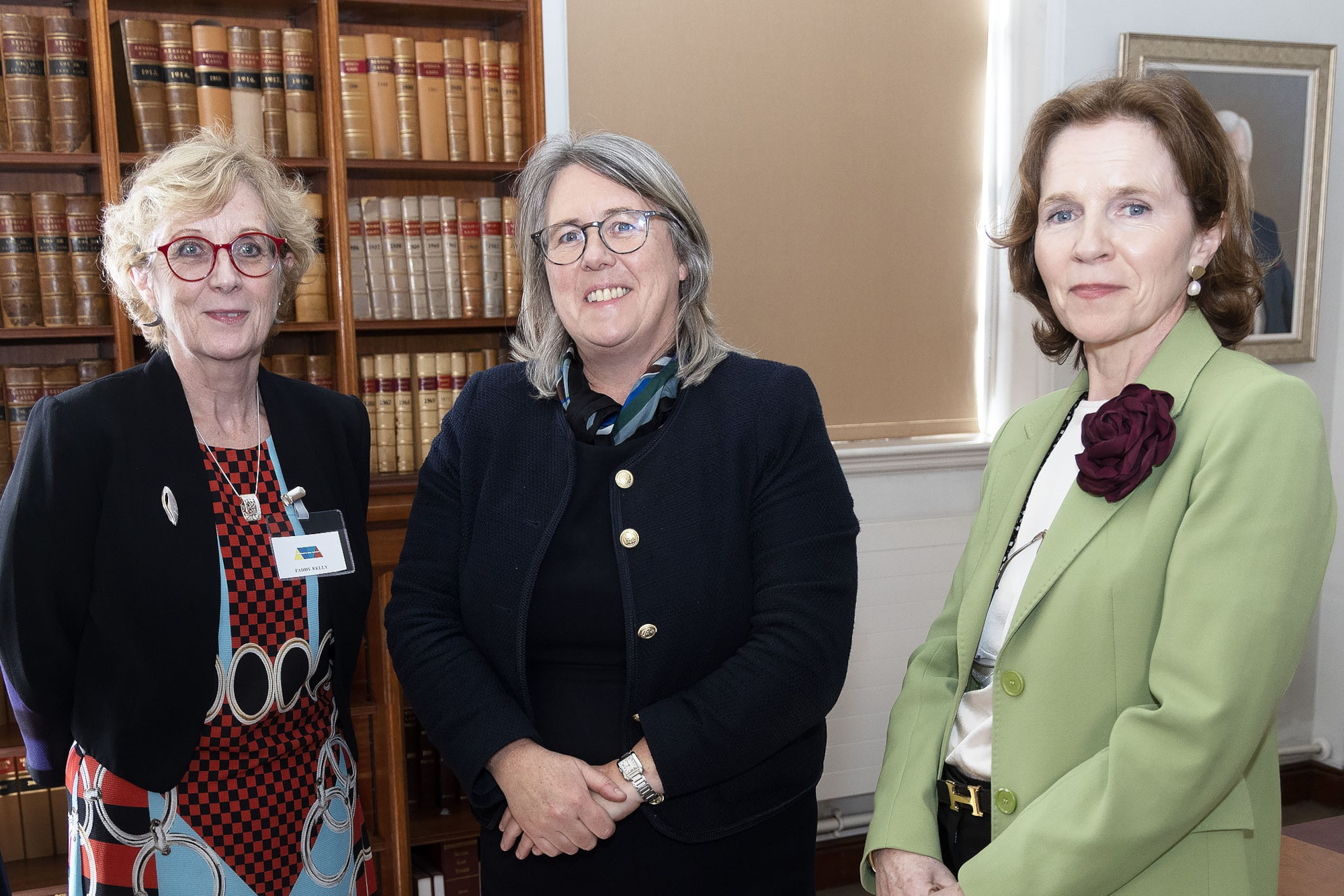
Pictured (left–right): Paddy Kelly, director at the Children's Law Centre, with the Lord Chief Justice of Northern Ireland, Dame Siobhan Keegan, and Judge Síofra O'Leary, then president of the European Court of Human Rights.
Paddy Kelly’s energetic leadership of the Children’s Law Centre (CLC) in Northern Ireland has seen it assume a pivotal role in advancing the rights and best interests of children and young people.
When Ms Kelly, its founder and CEO, steps down at the end of this month, the most important and all-consuming part of her career will formally conclude and John O’Doherty, the director of public policy and public affairs at the Community Foundation Northern Ireland, will become its new CEO in August.
Since she established the CLC in 1997 it has become acknowledged as the leading children’s rights organisation in Northern Ireland, one that received nearly 3,000 queries in 2023-24, according to its latest annual report.
Her tenure saw numerous significant developments including the implementation of recommendations by the United Nations Committee on the Rights of the Child (UNCRC), such as the establishment of the NI Commissioner for Children and Young People in 2003.
To say that Ms Kelly is passionate about the CLC’s role in promoting the rights of children is an understatement. After studying at Queen’s University, she qualified as barrister but eschewed what would have undoubtedly been a more lucrative career.
“While practicing at the bar, I was involved in the representation for children and young people in the youth justice system and became acutely aware there were many factors impacting negatively on their lives — one of which was that their rights simply weren’t being vindicated,” she recalls.
Working with Save the Children, she was engaged in the first UK examination by UNCRC in 1995, one that highlighted significant deficits in Northern Ireland in the realisation of children’s rights and a lack of focus and leadership to ensure these rights were upheld.
“Back then the other challenge was in changing the discourse and the narrative around children’s rights in this jurisdiction,” she says.
This was before the Good Friday Agreement when there was not a great understanding of children’s rights, plus a degree of antagonism towards human rights more generally. “Maybe if I’d realised then how challenging it would be to set up the CLC I might have thought twice, but I’m glad that I didn’t,” she adds.
The body now has a staff of 16 working across a range of functions that include strategic litigation that works like FLAC south of the border. The organisation also provides a free legal advice line and deals with some 3,500 issues every year.
“We have several solicitors and an employed barrister specialising in different areas such as mental health and special education needs — and, alongside that, seek to draw on the evidence coming through our advice line, through public affairs and policy engagement to bring about systemic change,” she says.
The CLC she adds also has a training function: “People who are duty bearers need to be made aware of their duties in a supportive way, while it’s important that young people are kept informed about what we do.”
Most of the CLC’s funding, she explains, comes from philanthropic organisations or trusts. “While we get small amounts from government, that’s certainly not enough to meet the scale of the need that exists.”
She cites Atlantic Philanthropies as ‘pivotal’ in enabling the CLC to begin developing its services. “When it completed its work in 2016 it gave us a grant that allowed us to buy our building in Belfast’s Ormeau Road.
“We were also reliant on The Community Foundation which gave us one of our first grants and had the vision to see our potential to address huge needs that include helping homeless children to secure a home; children with additional needs to access education; and refugee and asylum-seeking children to access education and health.”
In Northern Ireland, some legacies of the Troubles persist. “Plastic bullets continue to be used in this jurisdiction, despite repeated recommendations by the UNCRC and other UN bodies. Policing remains a serious concern, and we now have emerging problems such as the strip searching of children and indeed the use of tasers,” says Ms Kelly.
She believes that the CLC had an important role in achieving the closure of what was a Category C prison for children, and the reduction of the number of children in custody over the years.
“Another issue is that at the age of 10 we have one of the lowest ages of criminal responsibility in the world.
“It’s my view that had we enacted what was provided for in the Good Friday Agreement — namely, a Bill of Rights for Northern Ireland — we could have put in place stronger human rights protections to mitigate those ongoing challenges.”
Ms Kelly says that such a Bill of Rights would not only have incorporated the UNCRC but strengthened protections. “The UNCRC represents minimum human rights standards, and one would expect that developed democracies would seek and strive to maximise protection for our most vulnerable citizens.”
She also highlights the blight of child poverty, which she describes as “a symptom of a denial of children’s rights and a deliberate choice of government. It could be eradicated if we chose to spend money in supporting those who live in poverty as opposed to spending it on arms, for example.”
There remains then much to be done, something that was emphasised at the Children’s Law Centre annual lecture by Dame Siobhan Keegan, Lord Chief Justice of Northern Ireland, who said that while the jurisdiction has adopted the spirit of the UNCRC, Scotland had recently taken the significant step of incorporating it into Scots law.
“This move highlights a path towards strengthening domestic legal protections for children and may be replicated in other states who will no doubt keep an eye on the progress of the situation as it evolves in Scotland,” said Dame Siobhan.
Ms Kelly strongly concurs: “I think there’s an educative role for all of us working in the human rights sphere to increase an understanding of the fact that stronger human rights protect all of us, and that’s regardless of who we are, where we come from, the colour of our skin or our age.”
It seems unlikely then that someone so committed to human — and children’s — rights will step easily out of her continuing crusade on leaving the CLC, something that Ms Kelly confirms.
“I enjoy walking in Donegal and while it will be good to spend some time on the beaches this summer to clear my mind, I think I’ve something more to contribute beyond this role.
“I’ve worked with Save the Children and was involved in Central America. I also worked in human rights observation in East Timor during the period when it was occupied by Indonesia and undertook some election observation for the UN and the EU. With that interest in international human rights, I think I’ve still a bit to offer.”
As she prepares to step down from her current commitments though, she’s good reason to be encouraged by the CLC’s role in raising the awareness of children’s rights when under her leadership — and a growing awareness in children having agency in terms of claiming those rights.
“There’s now, even within the wider voluntary sector, an increasing acceptance that children’s rights are human rights,” she says.





